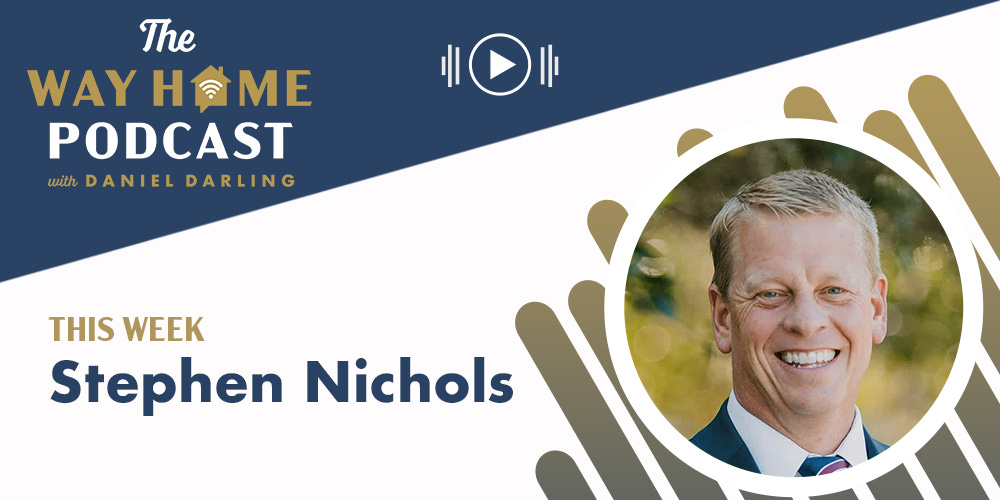I’ve been reading (actually listening to) Jon Meacham’s biography of the late John Lewis, “His Truth is Marching On.” I both read and listen to biographies, but I’m glad I’m doing this one via audiobook because the narration is just so good.
I’m only about a third of the way through it, but I’m struck by the language of the civil rights movement that a young John Lewis both joined and helped shape. It was steeped in the gospel, steeped in Scripture. Lewis and his fellow young people who joined felt this was a call of God upon their lives and that they were bearing witness to the gospel by suffering unjustly. Love was the motivation, love especially for those who refused to see their full humanity. “You can’t make me not love you” the freedom riders would say, in every town, to the mobs and the officers who beat them, blasted them with fire hoses, and set vicious dogs after them. They put their bodies on the line to force a confrontation and yet to encourage love. All their training—for the freedom rides, for the sit-ins, for the marches—centered on self-control, on not responding to the evil they experienced with more evil.
I’ve been thinking about this a lot. “You can’t make me not love you” is something rooted only and exclusively in the Christian gospel. Jesus’s admonition to love our enemies, Jesus's word to Peter to forgive over and over and over again is so radical, so counter-cultural.
And it’s so different than much of the Christian activism we see today. Today’s politics are often divorced from love. Instead of building movements by persuading others, we engaged in impossible purity tests and seek to cancel those who aren’t as enlightened as we are. As my friend Samuel James has eloquently said, there is no forgiveness in this moment.
It’s important to note that love is not to be confused with passivity. The calling of the civil rights leaders put them at the center of conflict, forcing a segregated society to confront its prejudice. Yet leaders like MLK and others sought “a beloved community” where people of all races could live side-by-side. So love isn’t at odds with standing up for the truth. Then as now, Christians will have to say things and believe things that the world just doesn’t like or want to hear. Yet we should say them in a way that is distinctly Christian (1 Peter 3:15). To love is to not lie.
Today you will wake up with a lot of incentives toward rage. You will scroll your social media timeline, and it won’t be hard to get worked up. You will remember a past conversation, and your blood pressure will rise. You will have a confrontation with a loved, one and it will be hard to hold back. I know this because I fight it every day.
There have good reasons to be angry. There is evil that should make us mad. Yet we should be careful to avoid the online rage factory that masquerades as activism, a performative public posturing that doesn’t actually achieve the goals on behalf of the causes we might be devoting our lives to advance.
Every day when we wake up, there is a list of people we want to hate. But if we truly experience God’s forgiveness of us in Christ, we must choose the hard work of love. It takes courage to love. Jesus, bleeding out on the cross, lifted himself to breathe out this last word toward those who held the hammers that nailed him to the cross, “Father, forgive them, for they know not what they do.”
This Week on The Way Home Podcast
In this episode of The Way Home podcast I am joined by Dr. Stephen Nichols, President of Reformation Bible College and chief academic officer for Ligonier Ministries, founded by Dr. R.C. Sproul. On this episode, Dr. Nichols talks about the life of R.C. Sproul, how he interacted with him, and why he wanted to write his most recent book “R.C. Sproul: A Life.” Dr. Nichols shares about what we can learn from Dr. Sproul’s faithful life walking with the Lord and teaching—and even shares some funny and interesting stories along the way.
Interesting Links
Bonnie Kristian has an insightful take on a subtle self-righteousness that has arisen during COVID.
Samuel James is very thoughtful in assessing the global population crisis.
My friend Derrick DeLain launched a church on Easter here in Nashville. Here’s a great Baptist Press story about it.
How about this story of a murderer finding “resurrection life?”
What I’m Reading
As I said above, I’m listening to His Truth is Marching On by Jon Meacham.
I’ve just started reading Peace Like a River, the award-winning novel by Leif Enger. All my friends have read it and now I’m finally getting to it. Wonderful, so far.
My Latest Books
A Way With Words: Using Our Online Conversations for Good.
Stay in Touch
If you got this from a friend or are reading it on social, make sure to subscribe now so you don’t miss any future content.
If you have any feedback on One Little Word, I’d love to hear from you. Connect with me on Twitter here.





